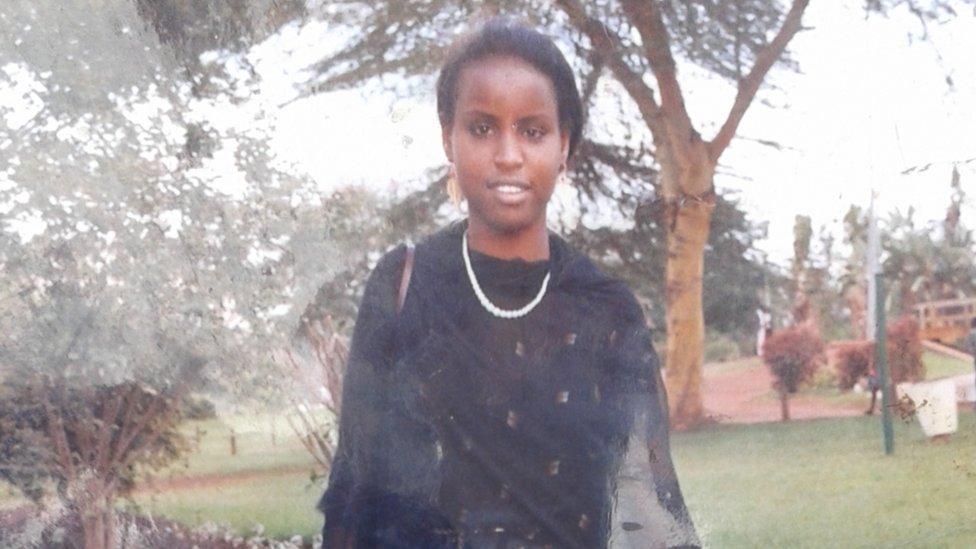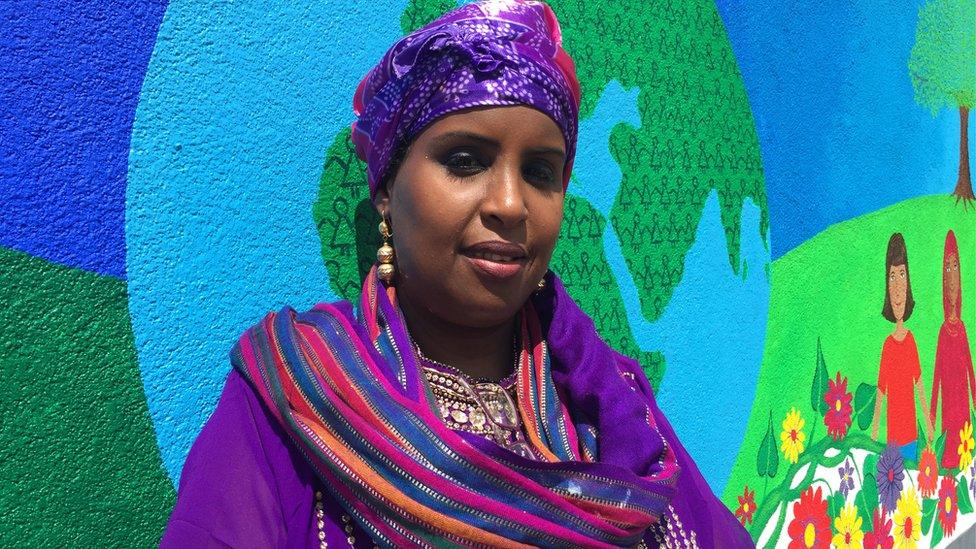FGM survivor: These are my questions to the woman who cut me when I was six
- Published

You may find parts of Hibo's story upsetting
Hibo Wardere was six years old when she was held down and cut.
She's from Somalia but now lives in the UK.
She can't go back because she's spoken out about female genital mutilation - known as FGM.
In her home country 95% of women have undergone cutting.
Here she tells Newsbeat what she would like to ask the woman who carried out FGM on her.
How does she go to sleep every night knowing she has cut hundreds of girls?
Each girl has a distinctive scream so how does she cope with hundreds and millions of screams in her head?
How does she cope with our blood on her hands?
How does she cope with what she's done to us?
How does she cope with the maybe hundreds of lives she's taken because she's cut the wrong vein?
How does she cope with all this?
That's what I want to ask her.

Hibo tells Newsbeat what happened to her
"It's a horrific memory. It's a memory that you can't erase and it stays with you for life.
"Out of nowhere I'll be watching EastEnders, seeing what's going on in the pub. Then all of a sudden I can smell my own blood, I can see my own flesh.
"I can see myself struggling and screaming for mercy.
"My mother was standing there, my aunty was holding me, cutters and helpers were holding me and she was cutting everything off."
"I had type three (FGM) which means your clitoris is gone, vagina lips are gone, everything's gone. On top of that, they stitch you and they leave you with a tiny hole which you are supposed to be weeing from and menstruating from and in the end - have intercourse from.
"You are absolutely consumed with pain from head to toe. You literally do not know how to cope with it. Many girls died. I prayed to die that day.
"You feel unloved, alone, isolated. You feel worthless, a shell of yourself, you're not a child anymore. You lose trust in others. It's a nightmare and it's the beginning of it.
"Physically you are never out of pain because of the damage they do.
"When I hit puberty my whole nightmare began because my period wasn't coming out right and every month I was in so much pain.
"It's a nightmare. I don't know how to get out of it, even if I talk to therapists, it's still there.
"You kind of learn how to cope with it. You don't have a choice."
If you need any help or support on FGM, there're more on the BBC Advice pages or you can visit the NSPCC , externalwebsite.
Find us on Instagram at BBCNewsbeat, external and follow us on Snapchat, search for bbc_newsbeat